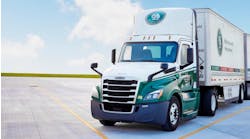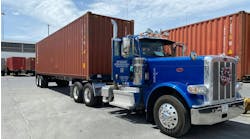Nearly one-third of new-vehicle buyers do indicate that they might consider purchasing a vehicle with a clean diesel engine, about the same number that indicate they have heard of clean diesel technology, according to J.D. Power's Associates Consumer Diesel Overview Study.
However, of the more than 5,200 survey respondents, 12% say they are "very likely" to purchase a new vehicle with a clean diesel engine and another 19% indicate they are "somewhat likely." And only 5% of respondents say they are "very familiar" with clean diesel technology.
"Consumers are already aware of traditional diesel engines and many have developed a rather negative image of them," said Thad Malesh, director of the alternative power technology practice at J.D. Power and Associates. "Manufacturers have to combat the negative attitudes toward diesel engines and inform consumers that clean diesel is cleaner, quieter and more environmentally friendly than the diesels that are on the road today."
One of the key reasons consumers give for considering clean diesel technology is that they expect these engines to have cleaner emissions, along with better fuel economy, power, durability and dependability. Of the 46% of respondents who are unlikely to consider this technology, the primary reasons given are the need for more information and concern about the availability of diesel fuel, as well as some of the traditional concerns about diesel engines, including noise and pollution.
The study shows consumers most expect to see diesel engines in full-size and compact pickups, while they least expect clean diesel engines in minivans and entry SUVs.
The study also assesses the competitive balance between clean diesel engines and hybrid gasoline-electric vehicle technology. Consumers perceive clean diesel as a technology for larger vehicles that has potential to move into smaller vehicles, while they see gasoline-electric hybrid vehicle technology as developing in small vehicles with the potential to move into larger vehicles.


